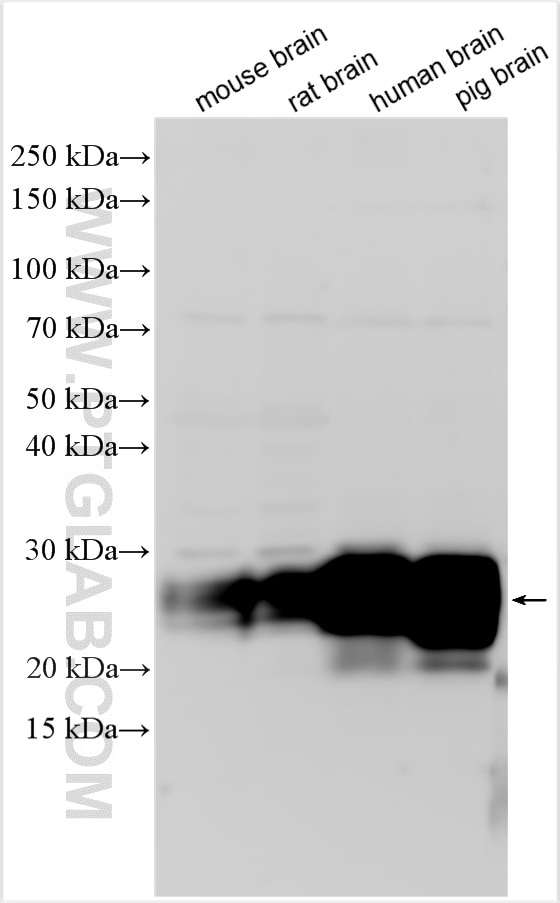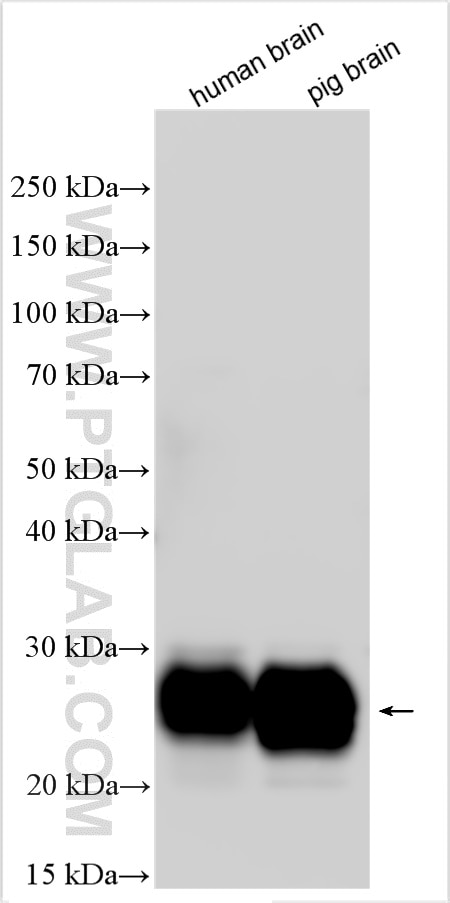Tested Applications
| Positive WB detected in | human brain tissue, mouse brain tissue, rat brain tissue, pig brain tissue |
Recommended dilution
| Application | Dilution |
|---|---|
| Western Blot (WB) | WB : 1:500-1:1000 |
| It is recommended that this reagent should be titrated in each testing system to obtain optimal results. | |
| Sample-dependent, Check data in validation data gallery. | |
Published Applications
| WB | See 1 publications below |
Product Information
27770-1-AP targets CD90 in WB, ELISA applications and shows reactivity with human, mouse, rat, pig samples.
| Tested Reactivity | human, mouse, rat, pig |
| Cited Reactivity | human |
| Host / Isotype | Rabbit / IgG |
| Class | Polyclonal |
| Type | Antibody |
| Immunogen | CD90 fusion protein Ag24713 Predict reactive species |
| Full Name | Thy-1 cell surface antigen |
| Calculated Molecular Weight | 161 aa, 18 kDa |
| Observed Molecular Weight | 28 kDa |
| GenBank Accession Number | BC065559 |
| Gene Symbol | CD90/Thy1 |
| Gene ID (NCBI) | 7070 |
| RRID | AB_3085994 |
| Conjugate | Unconjugated |
| Form | Liquid |
| Purification Method | Antigen affinity purification |
| UNIPROT ID | P04216 |
| Storage Buffer | PBS with 0.02% sodium azide and 50% glycerol, pH 7.3. |
| Storage Conditions | Store at -20°C. Stable for one year after shipment. Aliquoting is unnecessary for -20oC storage. 20ul sizes contain 0.1% BSA. |
Background Information
CD90, also known as THY1, is a 25-35 kD protein that is expressed on 1-4% of human fetal liver cells, cord blood cells, and bone marrow cells. CD90 is one of the essential surface molecules expressed on human MSC from bone marrow and other sources. Activation of Thy-1 has been reported to promote T cell activation. It also affects numerous nonimmunologic biological processes, including cellular adhesion, neurite outgrowth, tumor growth, migration, and cell death.
Protocols
| Product Specific Protocols | |
|---|---|
| WB protocol for CD90 antibody 27770-1-AP | Download protocol |
| Standard Protocols | |
|---|---|
| Click here to view our Standard Protocols |





